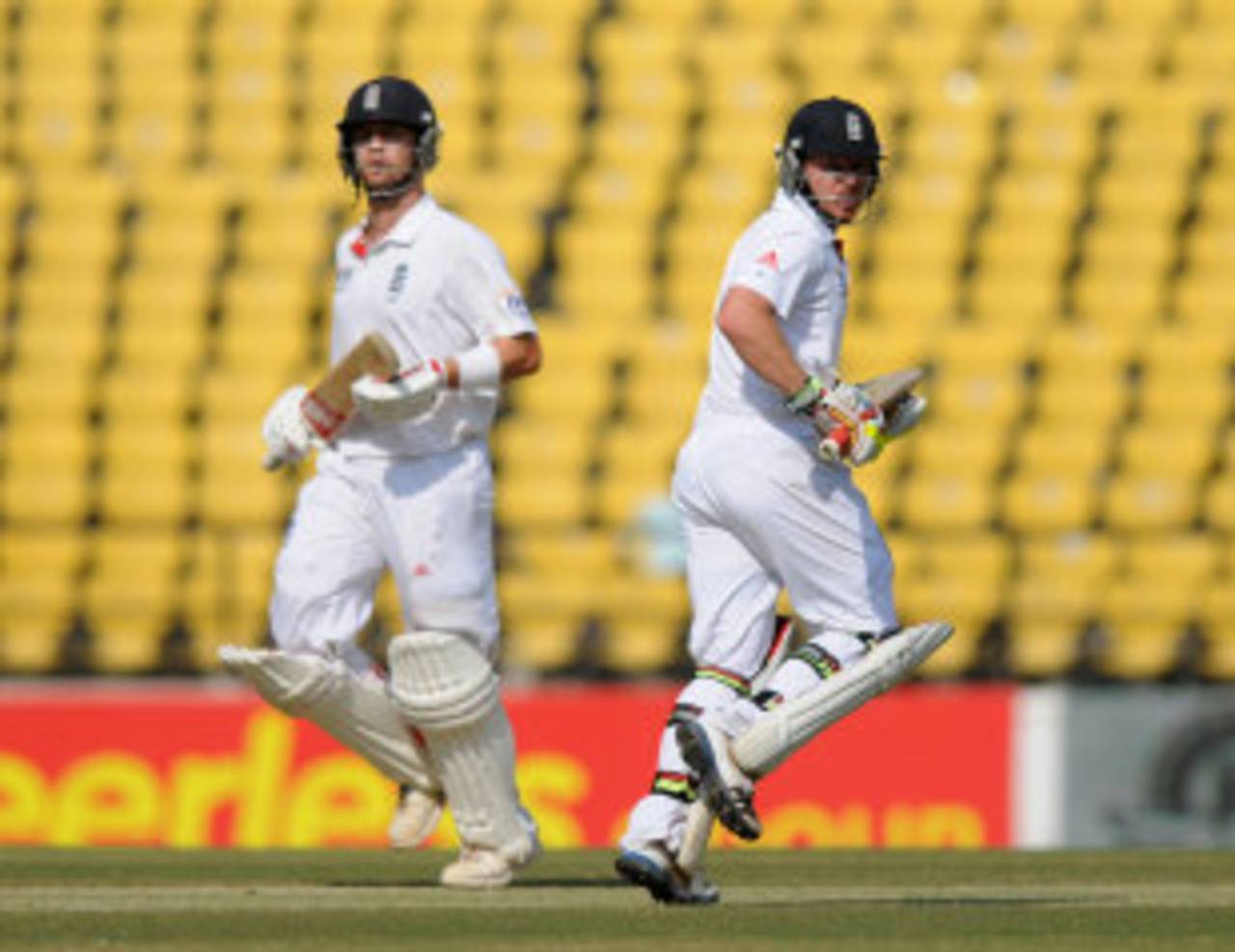The mercilessly squeezed goose and other stories
In other words, the Confectionery Stall's World Cricket Awards, part one
Andy Zaltzman
25-Feb-2013

The Nagpur Test: anaesthetists rejoiced • BCCI
Greetings, Confectionery Stallers, and welcome to part one of the Official Confectionery Stall 2012 World Cricket Awards. There will be a full awards ceremony in my garden shed next week, to which all the winners and their families are cordially invited.
Most Annoying Phenomenon in Cricket: Workload Management
The final splutterings of 2012 have seen England omit Kevin Pietersen from their almost-impending ODI series in New Zealand, and Australia ditch Mitchell Starc from the unquestionably impending Boxing Day Test against Sri Lanka.
Both men are having their workloads managed. I have no idea what Mitchell Starc asked Father Christmas for this year, but being left out of a Test match was presumably some way down the list below, for example, a new iPad, a pet iguana and a Spiderman outfit. Pietersen has had a particularly fascinating year in the field of workload management. After attempting to unilaterally manage his own workload, he then found himself having his workload forcibly managed for him, before an agreement was reached that has resulted in his workload being managed largely as he would probably have managed it anyway, and everyone has had a good, cathartic squabble along the way.
Both England and Australia are thus entering international matches voluntarily weakened. This is not to suggest that they are wrong to do so. The modern international cricket schedule, however, is a merciless taskmistress, who brandishes a forbidding-looking whip and demands that everyone address her as "Mistress Supreme". Selectors sometimes have to grit their teeth and take their punishment.
International sport is supposed to pit the best performers a nation can muster against each other. Not the best performers a nation can muster, minus a few players they would rather preserve for future engagements, whilst trying to avoid overhearing anyone asking: "What was the point of that? Was that an international cricket match or an exhibition hit-about?"
It happens in many sports now. It is not an entirely new phenomenon but it is increasingly widespread as the demands and appetites of professionalism grow ever more insatiable. Two thousand and thirteen will see cricket continue to squeeze its various golden geese, and squeeze them where it hurts, until they honk for mercy. As Aristotle once wrote: "When you have a golden goose, and it is not laying the golden eggs you want it to lay, beware of lopping off bits of its anatomy that look a bit like eggs. It will probably leave you with an angry, unproductive goose."
Worst Cricket Match of the Year: India v England, fourth Test, Nagpur
I have not seen all cricket matches played at all levels in the world this year. In fact, I have seen relatively few, either live or on television. But it would take a game of epoch-defining dreadfulness to knock the Nagpur Test off its miserably grey perch. On a good pitch, this could have been a thrilling match. It might not have been a thrilling match, as Dhoni's India had shown few signs of Lazarusing themselves into action and breaking England's stranglehold, but it might have been. But any possibility of an intriguing climax to the series was clattered round the back of the head with a tedious frying pan, as the cricket world was treated to five days of historically uninteresting nothingness, a competitive oblivion, a sporting vacuum into which all excitement, unpredictability and intrigue was sucked, played on a pitch that could have found a job in a controversial Swiss euthanasia clinic. Even watching it on television, at a safe range of more than 4500 miles, it felt like a cross between a jail sentence and a funeral.
Most Annoyingly Short Series of the Year: England v South Africa
Irritatingly curtailed Test series are one of the innovations in modern cricket that have proved curiously popular with administrators, along with torpid over rates, dull pitches, balls that don't swing, piddling around with the regulations in 50-over cricket before settling on ones that seem designed to make the game less interesting, knackered bowlers, and empty stadiums. England's main summer series was only three matches long, for various reasons (including the Olympics, the Mayans predicting the end of the world for December 2012 and cricket's authorities wanting to give the players more time to spend with their families, a pandemic of tetraphobia that swept across Europe at the time the season schedule was being finalised, and the unarguable and sacred duty to conclude the international summer with an anticlimactic and unrememberable two-week ODI series).
Fortunately South Africa had the decency to go 2-0 up after the three Tests, so for once a needlessly brief showdown between leading teams was not sawn off in its prime when tantalisingly poised, like a horse race in which, just before the final furlong, a cheese wire has been strung across the track at horse-shin height. But the point, unlike the fictitious horsies, still stands. The rivalry between the new world No. 1s and their immediate predecessors was then, like the fictitious horsies, hidden behind a tarpaulin and humanely destroyed - there will have been a gap of well over three years before their next Test series.
Part two will follow at some point shortly before or after 2012 consigns itself tearfully to the history books. In the meantime, have a phenomenal Christmas (if [a] Christmas is your bag, and [b] that means anything coming from a second-generation-lapsed-Jewish atheist), and enjoy India v Pakistan. It's good to have it back. Even the golden goose still squeezes out the odd worthwhile nugget.
Andy Zaltzman is a stand-up comedian, a regular on the BBC Radio 4, and a writer